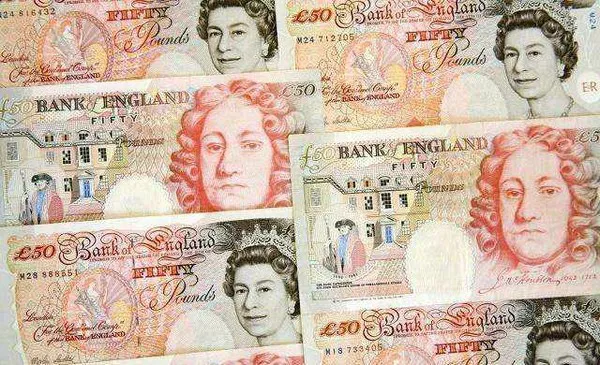In the realm of global finance, a multitude of acronyms and terms often leave individuals perplexed and bewildered. One such acronym that frequently garners attention is GBP. What exactly does GBP mean, and why is it such a pivotal concept in international finance? This article aims to provide a comprehensive understanding of GBP, elucidating its meaning, history, and significance, in an extended exploration extending to 800 words.
GBP: An Abbreviation Unveiled
GBP stands for “Great British Pound,” which is the official currency of the United Kingdom, including England, Scotland, Wales, and Northern Ireland. It is one of the oldest and most enduring currencies in the world, with a rich history dating back to the 8th century. The GBP is also referred to as “pound sterling,” denoted by the symbol £, and represented by the ISO code “GBP.
History of GBP
The history of the GBP is a tale of evolution and resilience. It originated from the ancient British currency system, which included various denominations of pounds, shillings, and pence. The term “sterling” was introduced by Henry II in the 12th century, signifying the purity of the currency. The phrase “pound sterling” was coined to distinguish the currency from other less reliable forms of money in circulation at the time.
The Gold Standard
During the 19th century, the GBP played a significant role in the global financial landscape. The United Kingdom was the first country to adopt the gold standard in 1821. Under the gold standard, the value of the pound was tied to a fixed quantity of gold. This provided stability and confidence in international trade, as currencies were directly convertible into gold at a set rate. The GBP was a key reserve currency during this era, and London emerged as the world’s financial center.
The Decline of the Gold Standard
The gold standard faced several challenges, particularly during and after World War I. The enormous cost of the war led to a significant devaluation of the pound, and the gold standard was temporarily abandoned. Although it was reintroduced in 1925, the system could not sustain itself amidst the economic turbulence of the early 20th century. In 1931, the UK left the gold standard, ushering in a new era of flexible exchange rates.
Bretton Woods Agreement
After World War II, the Bretton Woods Agreement in 1944 established a fixed exchange rate system. The GBP was pegged to the U.S. dollar, and the dollar was, in turn, linked to gold. This system prevailed until 1971 when the United States abandoned the gold standard, leading to the collapse of the Bretton Woods system. Following this event, major currencies, including the GBP, transitioned to floating exchange rates.
The Modern GBP
Today, the GBP exists in a world of flexible exchange rates. Its value is determined by the foreign exchange market, where supply and demand factors, economic data, and political developments influence its value. The GBP remains one of the world’s major currencies, commonly traded in the global foreign exchange market, also known as the forex market.
Significance of GBP in Global Finance
The GBP holds immense significance in global finance for several reasons:
Trade and Commerce: The United Kingdom is one of the world’s largest economies and a vital player in global trade. The GBP is essential for international transactions, facilitating commerce and investment on a global scale.
Forex Market: The GBP is one of the most actively traded currencies in the foreign exchange market. Its liquidity and volatility make it a favored choice for traders and investors worldwide.
Investment: The GBP is a preferred currency for global investors, especially in the financial markets of London, one of the world’s foremost financial hubs. The currency is utilized for trading stocks, bonds, and various financial instruments.
Tourism: The United Kingdom is a popular tourist destination. Visitors exchange their foreign currency for GBP when traveling to the UK, stimulating economic growth in the country.
Hedge Against Risks: The GBP often serves as a hedge against currency risk for international businesses. This means that companies can use the pound to protect themselves from unfavorable exchange rate movements.
Role in International Finance: London’s financial district, known as the City of London, is home to numerous global financial institutions. The GBP is integral to the international financial transactions that occur within this thriving sector.
Challenges Faced by the GBP
While the GBP has a storied history and significant global influence, it faces certain challenges and uncertainties:
Brexit: The United Kingdom’s decision to exit the European Union, known as Brexit, has introduced economic and political uncertainties. This has had repercussions on the value and stability of the pound.
Exchange Rate Volatility: Like most major currencies, the GBP experiences fluctuations in value due to a variety of factors, including economic data releases, geopolitical events, and market sentiment.
Economic Performance: The performance of the UK economy has a direct impact on the GBP. Economic indicators such as GDP growth, employment figures, and inflation rates can influence the pound’s value.
Interest Rates: The Bank of England, the UK’s central bank, sets interest rates that can affect the GBP’s appeal to investors. Higher interest rates tend to attract foreign capital, increasing demand for the currency.
Conclusion
In conclusion, GBP, or the Great British Pound, has a long and storied history dating back to the 8th century. It has evolved from a system of pounds, shillings, and pence to become one of the world’s most influential currencies. Its role in international finance is critical, supporting trade, investment, and financial activities worldwide.
While the GBP has faced its share of challenges, including fluctuations in value and uncertainties surrounding Brexit, it remains a key player in the global financial landscape. As one of the most actively traded currencies in the forex market, the GBP continues to impact businesses, investors, and governments around the world, making it a currency of utmost importance in global finance.


